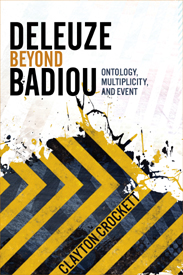
“Ideology asserts that something other than Jesus Christ awakens one from the world’s stupor, but no other force is adequate to the task.”

This intervention invites readers to consider Largier’s interdisciplinary approach on figuration and theistic immanence, particularly in the light of Foucault’s reflection on Subject and Power and his large influence on Anthropological and Social Sciences studies of power and the willful subject. Napolitano examines mystics and negative theology’s thread of “the ground” in Largier’s work, likening its affective intensity and dynamic of figuration to an otherwise imagination of the political, and its forms of violence.

The Invisible Committee may be productively, albeit counterintuitively, understood as Gnostic, a perspective that will put into question some of the assumptions behind the way the political and the theological are demarcated from and related to each other in contemporary debates.

Foucault’s emphasis on the ‘care of the self’ is usually hailed as a significant challenge to the understanding of ethics. With the tendency of ethics to focus on the ‘other’ and how one relates to that other, the turn to consider the construction of the subject seems to be radical. This was also Foucault’s answer to the perennial problems of ethics . . .

Clayton Crockett’s Deleuze Beyond Badiou is more than a commentary on Badiou’s reading of Deleuze or a defense of Deleuze. It is, rather, a transdisciplinary work that crosses the domains of theology, philosophy, and politics through a reading of the relationship between Deleuze and Badiou. Crockett’s goal, however, is not primarily descriptive but constructive, in that he uses the relationship between the two philosophers as a means for thinking otherwise.

